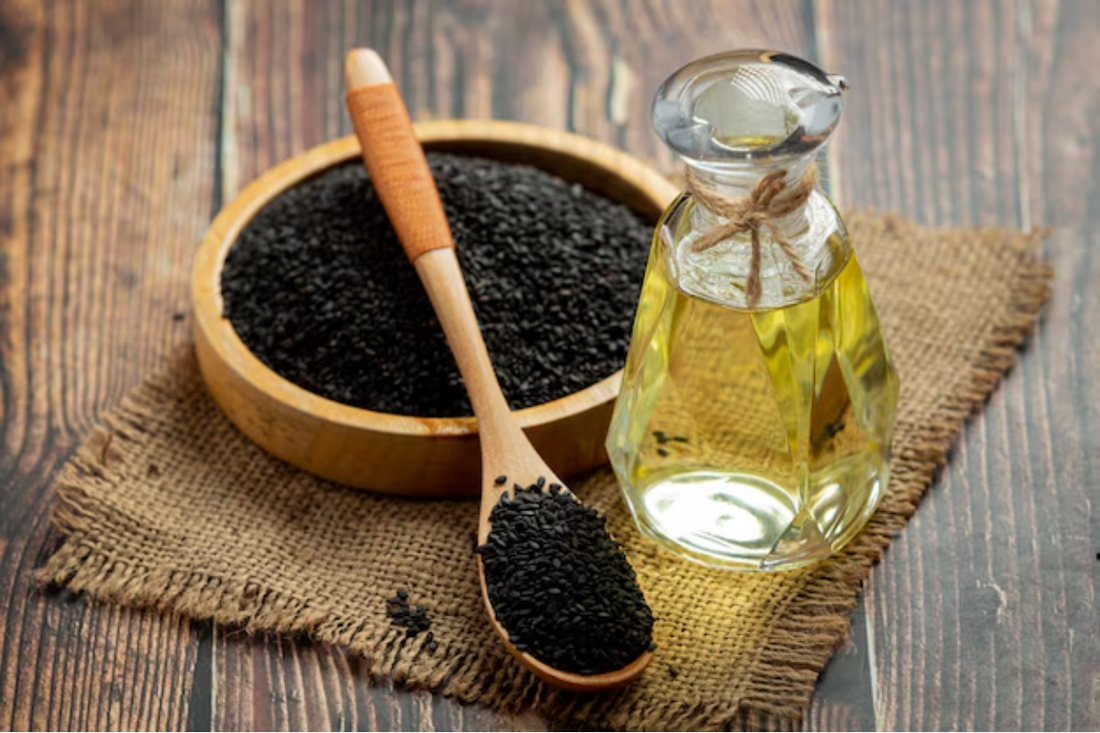
Organic Moringa Oil vs. Organic Black Seed Oil: Which Is Right for Your Skin?
Share
As more people turn to natural skincare solutions, organic oils are at the forefront of achieving radiant, healthy skin. Two oils making waves in skincare are organic moringa oil and organic black seed oil. Both are packed with nourishing compounds, antioxidants, and unique benefits that cater to different skin types and concerns. But how do you choose between them?
Let’s take a closer look at each oil's properties, benefits, and ideal uses to help you find the best match for your skin.
What Is Organic Moringa Oil?
Organic moringa oil, extracted from the seeds of the Moringa oleifera tree, has been used in skincare for centuries. Known as the “miracle tree,” Moringa oleifera thrives in various climates, and its seeds are rich in oils that offer intensive hydration and rejuvenation. The oil has a high content of oleic acid, making it incredibly moisturizing. It also contains vitamins A and E, which are known to help protect the skin from environmental damage and reduce signs of aging.
Key Benefits of Organic Moringa Oil
Deep Moisturization: With a high oleic acid content, organic moringa oil deeply penetrates the skin, providing hydration that lasts. This makes it especially useful for those with dry or dehydrated skin.
Anti-Aging Properties: Thanks to its antioxidants, including vitamin E, organic moringa oil helps neutralize free radicals, which can lead to premature aging. This makes it ideal for reducing fine lines and keeping the skin youthful.
Soothes Sensitive Skin: Moringa oil is known for its anti-inflammatory properties, making it suitable for sensitive or easily irritated skin. It helps calm redness, itchiness, and other signs of skin stress.
Balances Oily Skin: While it’s hydrating, moringa oil is also lightweight and non-comedogenic, meaning it won’t clog pores. This makes it suitable for those with combination or oily skin types, as it can balance oil production without causing breakouts.
What Is Organic Black Seed Oil?
Organic black seed oil, derived from the seeds of Nigella sativa, is another powerful oil celebrated for its many skincare benefits. Historically known as the “seed of blessing,” black seed oil has been used for centuries in traditional medicine. Its distinct properties, including a high level of thymoquinone—a compound with antioxidant and anti-inflammatory effects—make it particularly beneficial for skin health.
Key Benefits of Organic Black Seed Oil
Anti-Inflammatory Powerhouse: Black seed oil is renowned for its anti-inflammatory properties, making it an excellent choice for those with acne-prone or sensitive skin. It helps reduce inflammation and redness, providing a calming effect for irritated skin.
Rich in Antioxidants: Like moringa oil, organic black seed oil is packed with antioxidants. These antioxidants combat oxidative stress and protect the skin from environmental damage, helping to keep skin looking fresh and youthful.
Acne Control: With its antimicrobial properties, black seed oil can help reduce bacteria on the skin that may lead to breakouts. Its ability to balance oil production makes it especially useful for acne-prone skin.
Supports Skin Barrier Health: Black seed oil contains essential fatty acids, which contribute to a healthy skin barrier. By reinforcing the skin’s barrier, it helps retain moisture and improve skin resilience, making it suitable for dry or compromised skin.
Choosing the Right Oil for Your Skin
When deciding between organic moringa oil and organic black seed oil, it’s essential to consider your skin type and specific needs. Here’s a breakdown to help you decide:
For Dry, Aging, or Dull Skin: If your primary concern is dryness, dullness, or early signs of aging, organic moringa oil may be the better choice. Its deep hydration and high levels of vitamin E provide a radiant glow while combating signs of aging.
For Sensitive, Acne-Prone, or Inflamed Skin: Organic black seed oil may be more suitable if you have sensitive or acne-prone skin. Its anti-inflammatory and antimicrobial properties help calm irritation and reduce the likelihood of breakouts, providing a soothing effect without clogging pores.
For Combination Skin: Both oils can benefit combination skin, but it’s essential to experiment to find what works best. Moringa oil can be great for areas that need hydration, while black seed oil can help with areas prone to breakouts or inflammation.
Final Thoughts
Choosing between organic moringa oil and organic black seed oil depends on your skin’s unique needs. While moringa oil excels in hydration and anti-aging benefits, black seed oil shines as an anti-inflammatory, making it ideal for sensitive and acne-prone skin. Both oils are exceptional natural skincare options that can help you achieve a healthy, radiant complexion. Whether you choose one or both, incorporating these oils into your skincare routine can bring out the best in your skin, naturally.
